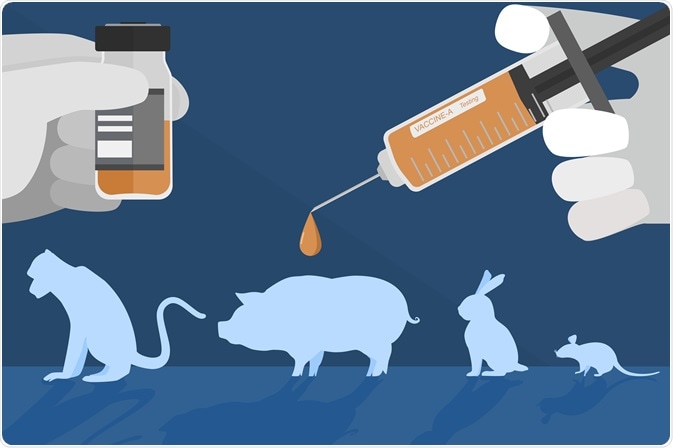Handy Reasons On Picking Collagen For Dogs
Wiki Article
What Are The Most Common Animal Health Issues?
Animals' medical issues can differ based on the animal's species, age and overall health of an individual animal. Common conditions for animals include
Parasitic Infections – ticks and fleas aswell with mites and worms can cause different health issues. Parasite prevention and regular check-ups are crucial. Skin conditions such as allergies and dermatitis can cause discomfort and irritation to animals.
Ear Infections - Ear infections among dogs and cats, in particular those with floppy ear flaps may cause discomfort and even hearing issues.
Dental problems can be detrimental to an animal. Gum infections, and tooth decay are all dental issues that can impact the general health of an animal.
Respiratory Infections: Animals can be afflicted by upper respiratory illnesses, pneumonia, and bronchitis, particularly in stressful or overcrowded environments.
Joint and arthritis issues - A lot of older animals, like some large breeds of dogs, may suffer from joint and arthritis issues. They can cause an increase in pain and reduced mobility.
Obesity. Animals who are overweight could be at risk for various health problems, including joint disease, diabetes, and heart diseases.
Gastrointestinal Problems- Dietary issues or infections, as well as other underlying issues can cause diarrhea, vomiting and other digestive problems.
Cancer - Animals, like humans, can develop various types of cancer, which may require treatment such as surgery, radiation or chemotherapy.
Injury and wounds- Accidents or fights can result in soft tissue injuries, fractures or wounds that need medical care. It is important to keep in mind that early diagnosis is the key to maintaining animals' wellbeing and health. Regular veterinary examinations as well as vaccinations for parasites and a healthy diet can prevent the development of these conditions. Additionally, if your pet exhibits any signs of discomfort or sickness it is important to seek medical attention immediately. Check out the Best probiotics for dogs for more recommendations.

Which Are The Most Potent Vitamins, Probiotics Or Supplements For Cats And Dogs?
The choice of probiotics, vitamins, and other supplements for dogs must be based on the individual needs of your dog and any recommendations from a vet. It is essential to provide your dog a nutritious and balanced diet. However, certain dogs can benefit from supplements. Below are some supplements that are beneficial to dogs.
Antioxidants. Antioxidants, including vitamin E and C can protect your dog’s cells against oxidative stress. They also help to strengthen the immune system. Calcium and Vitamin D- These are important for maintaining strong teeth and bones, particularly in growing puppies as well as large breed dogs.
Fiber Supplements are beneficial for dogs suffering from digestive issues, like constipation or diarrhea.
Green-Lipped Mullet Extract supplement contains an abundance of omega-3 fatty acids and helps improve mobility and reduce joint swelling in dogs with arthritis.
Coenzyme (CoQ10): CoQ10 is a potent antioxidant that helps to maintain heart health. It also helps to create energy in cells.
Milk Thistle This herb may help pets with liver issues or are taking liver medications.
It is essential to talk to your vet before giving any kind of supplement to your dog. Your vet can offer specific advice based on your dog's requirements and needs. The amount of supplements you give your dog can differ depending on factors like the weight of your dog, its age and health. Overdosing can also cause harm. You should also choose supplements that are made by reliable businesses as their quality and safety of the products can vary. Always follow the dosage instructions and look out for any adverse reactions. Consult your veterinarian if you notice any strange signs or reactions. A well-balanced and veterinarian-recommended diet is typically the best way to meet your dog's nutritional needs, and supplements should only be used when necessary and under professional guidance. Take a look at the most beautiful pet sleep with herbs for more advice.

What Is The Prevalence Of Skin Allergies, Yeast Infections And Kidney Failure? What Are The Treatments?
There are a variety of diseases that can be affecting your dog, such as skin allergies and yeast infections. They are different in severity depending on breed, age, and general health. Here is an overview of each condition that is prevalent, as well as possible treatments.
Infections with Yeast: Prevalence Yeast infections in dogs are fairly common, particularly in areas with skin folds, ears and paws. Breeds with skin folds like Bulldogs and Shar Peis could be more susceptible to these infections.
The symptoms include itching and swelling or redness or a foul odor, as well as discharge. Head shaking or discomfort may be caused by an ear infection.
Treatment: The treatment involves treating the underlying cause, such as skin folds or allergies with topical antifungal agents and, in some cases oral antifungal medications. Proper cleanliness is crucial.
Some dogs are not afflicted from these ailments. Furthermore, the frequency of these conditions will vary between breeds and breeds. Regular check-ups with your veterinarian and a balanced diet and preventive steps (such as the control of fleas and proper hygiene) can reduce the risk of these diseases. Talk to your vet if think your dog is suffering from any medical issue like kidney issues, skin allergies or yeast infections. A veterinarian can offer the most accurate diagnosis, as well as a tailored treatment program. Early intervention could lead to improved outcomes and a better quality of life for you pet. The very best of the most pet herbal supplements for stress relief for more examples.
